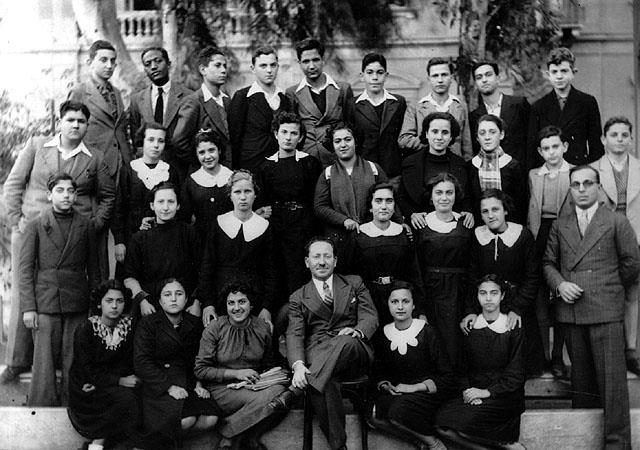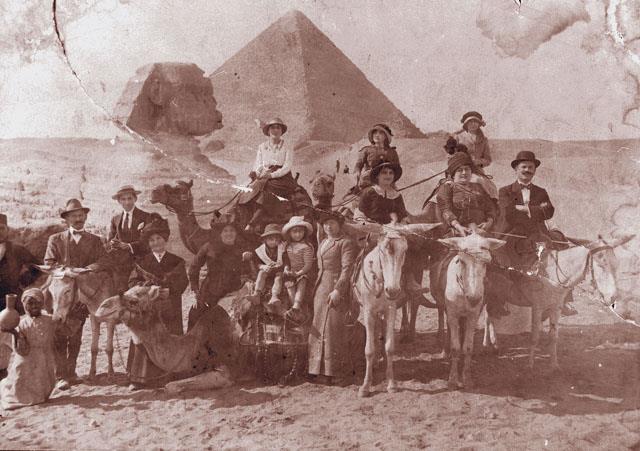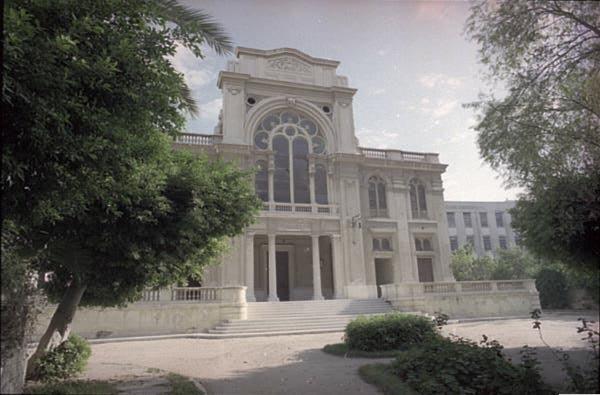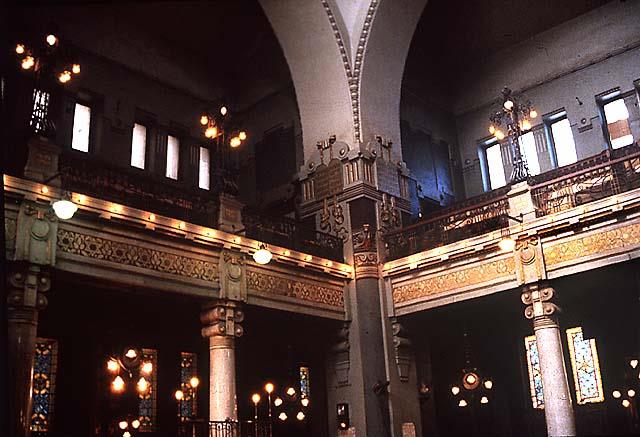The Jewish community of Egypt flourished from the mid-19th century through the 1950s. Egypt’s increasing integration into international trade, particularly after the opening of the Suez Canal, attracted Jews from other parts of the world who settled in Egypt, manly in Cairo and Alexandria, alongside members of the veteran local Jewish community. Their arrival in Egypt coincides with the period when the use of surnames became widespread. An investigation into the meaning of the family names documented among the Jews of Egypt during modern times allows for a glimpse into the ancestry of their families and their country of origin before immigrating to Egypt.
A large group of names are typical to Sephardi Jews, descendants of those expulsed from Spain in 1492, who arrived in Egypt directly from the Iberian Peninsula or by the way of other countries in North Africa, the Balkans and Turkey. Names of Sephardi Jews in Egypt include Amarillo / Amarillio (“yellow”, in Spanish), meaning “blonde”, Moreno (“brown”, in Spanish), Ashkenazi, Farhi, Malka, Amiga (“friend”, in Spanish) and Aboaf. The meaning of the surname Madjar, documented in Egypt, is “Hungarian”. This family name is common among the Jews of Bulgaria, a country that welcomed some of the Jews who were expelled from Hungary in late medieval times. Carasso, a well-documented Sephardi name from Thessaloniki, Greece, is derived from Karasu (literarily “black water”, in Turkish), the name of a town in north western Turkey on the Black Sea coast.

Agion / Aghion (“holy”, the equivalent of the Hebrew name Kadosh) is a Greek name. Beit Aghion (Aghion House), built in Jerusalem according to the plans of the architect Richard Kaufman from 1936-1938 for Edward Aghion, a wealthy merchant from Alexandria, is known today in Hebrew as Beit Rosh HaMemshala and serves as the official residence of the Israeli prime minister. Other Greek names include Castoriano, which is derived from the name of Castoria, a town in northern Greece.
Many Jews of Italian origin lived in Egypt for generations. They can be identified by their names, many are derived from place names in Italy, such as Fiorentino (from Florence), Viterbo (from Viterbo, the name of a town in central Italy), Capua (from the name of a town in the Naples area), or from Italian terms, like Casuto (“married”, in Italian) or Procaccia (“postman”, in Italian).

A large group of family names were derived from Arabic, of them many are documented in other Jewish communities in Arab lands. They include names derived from occupations, such as Hakim (“doctor”), Najar (“carpenter”), Harari (“silk merchant”) and Saban (merchant or producer of “soap”). The Israeli-American businessman Haim Saban was born in Alexandria in 1944. In addition, some Hebrew names were translated into Arabic, like Abdullah, an equivalent of Ovadiah. Other names are toponyms derived from places names in Egypt, such as Minio, from Minya, a city in Upper Egypt, or Cattaoui (Qaṭṭāwī , in Arabic), the name of a distinguished Jewish family, derived from Catta, the name of their ancestral village just north of Cairo. Joseph Aslan Cattaui Pasha (1861-1942) served as Egypt’s minister of finance (1924), minister of communication (1925), member of the Senate (1927-1939) and President of the Jewish Community of Cairo (1924-1942).
A number of Jewish families from Aleppo in Syria settled in the land of the Pharaohs too. They are recognized by their names, among them Taouil (Tawil), which means “long” in Arabic, and Douek (a type of “jug”, in Arabic), both families of Cohanim. A distinguished bearer of the family name Douek was Rabbi Haim Moussa Douek (1905 – 1974), a native of the Turkish city of Gaziantep (Antep), who served as the last Chief Rabbi of Egypt.
Samoucha family, from the Hebrew samukh (“close”, “near”) the cantor, and Baghdadi family came to Egypt from Iraq. Harouch (“head”), Barchilon (from Barcelona), Alfassi (from Fez, Morocco) and Mograbi immigrated to Egypt from North Africa.

From the end of the 19th century, Ashkenazi families from Central and Eastern Europe also settled in Egypt. Their names include Farber (“painter”), Zuckerman (“sweet man”), Samuelson (“son of Samuel”), Goldenberg (“Golden Mountain”), Wechsler (“money changer”), Feldman (“peasant”) and more. These names were common in all Eastern and Central European Jewish communities. Despite this fact, some family names may reveal the family’s country of origin. Alteresco is a Jewish family name derived from the Yiddish alter, which means “old”, “mature” but also “respectable”, plus the typical Romanian suffix “-esco” which indicates that before settling in Egypt the family lived in Romania.
Names derived from Hebrew are shared by all. These family names include Hazzan, Dayan, Gabbay, Gaon, and Hasid. These names are derived from terms describing various functions within the Jewish community.

In addition, and like in other communities, the Jews of Egypt adopted surnames derived from the given name of one of the family’s ancestors, such as Elijah, Menashe or De Manasseh, Ben-Simon and Nachman. Double surnames were used only occasionally. For example, some bearers of the family name Harari, which is quite common among the Jews of Egypt, adopted a second surname, such as Harari Sasson, Harari Agion or Harari Najar.
Since most of the Egyptian Jews are Francophones – many were educated at Alliance Israélite Universelle (AIU) institutions – the spelling of surnames appears usually in accordance to the rules of the French orthography regardless of the linguistic source of the names.
For a comprehensive list of Jewish family names in Cairo see Jacob Rosen-Koenigsbuch, Index of Jewish Surnames Found in 20th Century Cairo, Avotaynu Online, Dec. 2019